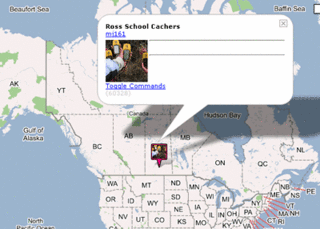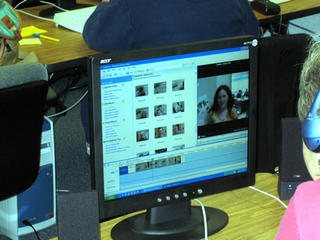Small Pieces...Firefox, Greasemonkey,Flickr, Google Maps, Google Earth

The concept of Small Pieces is starting to click in for me thanks to Rob, Cogdog and Dave Weinberger. Without going into the concept, (that's what the previous links are for) here's my experience today.
I received a comment on my Flickr site about a photo of some students with GPS units. He asked what it was about. I explained it briefly but knew there was a way to "geotag" the image and link it to a map to show its exact location. I installed the Greasemonkey extension and a few scripts (if you're reading this and thinking..this is way to techie for me, I don't understand how all this works, I just read and follow instructions) and I was pretty much set.
Following the detailed instructions, I was able to create a link to geobloggers which takes advantage of google maps API. There was even a link to Google Earth which in case you didn't know is my favourite freeware program. The Posse is planning a podcast tomorrow and I'll talk more about it then.
So all these small pieces allowed me to find out a great deal and even discovered a few other treasures along the way.



